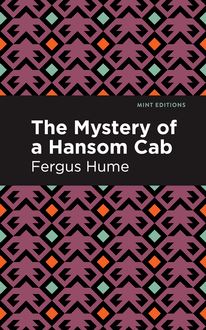-
 Univers
Univers
-
 Ebooks
Ebooks
-
 Livres audio
Livres audio
-
 Presse
Presse
-
 Podcasts
Podcasts
-
 BD
BD
-
 Documents
Documents
-
- Cours
- Révisions
- Ressources pédagogiques
- Sciences de l’éducation
- Manuels scolaires
- Langues
- Travaux de classe
- Annales de BEP
- Etudes supérieures
- Maternelle et primaire
- Fiches de lecture
- Orientation scolaire
- Méthodologie
- Corrigés de devoir
- Annales d’examens et concours
- Annales du bac
- Annales du brevet
- Rapports de stage
La lecture à portée de main
Vous pourrez modifier la taille du texte de cet ouvrage
Découvre YouScribe en t'inscrivant gratuitement
Je m'inscrisDécouvre YouScribe en t'inscrivant gratuitement
Je m'inscrisEn savoir plus
Vous pourrez modifier la taille du texte de cet ouvrage
En savoir plus

Description
When a German spy meets an English lookalike, he devises a plan to travel to London, assume his identity, and gather intel for his government. The Englishman’s new persona catches several people off guard including his wife. While living in East Africa, Sir Everard Dominey encounters a man named Leopold von Ragastein. He’s a native German who can easily pass as Sir. Everard’s doppelgänger. Leopold isn’t just a friendly host, he’s a spy for the German government. When Sir. Everard returns to London, he is confronted by his wife, Lady Rosamund, with a serious accusation. Is this the real Sir Everard or has Leopold von Ragastein taken his place? The Great Impersonation features many of E. Phillips Oppenheim’s most notable themes. It’s a murder mystery, a case of mistaken identity and a political thriller. The author delivers a compelling story that ends with a timeless and unexpected twist. With an eye-catching new cover, and professionally typeset manuscript, this edition of The Great Impersonation is both modern and readable.
Sujets
Informations
| Publié par | Mint Editions |
| Date de parution | 14 mai 2021 |
| Nombre de lectures | 0 |
| EAN13 | 9781513286235 |
| Langue | English |
| Poids de l'ouvrage | 2 Mo |
Informations légales : prix de location à la page 0,0500€. Cette information est donnée uniquement à titre indicatif conformément à la législation en vigueur.
Extrait
The Great Impersonation
E. Phillips Oppenheim
The Great Impersonation was first published in 1920.
This edition published by Mint Editions 2021.
ISBN 9781513281216 | E-ISBN 9781513286235
Published by Mint Editions®
minteditionbooks.com
Publishing Director: Jennifer Newens
Design & Production: Rachel Lopez Metzger
Project Manager: Micaela Clark
Typesetting: Westchester Publishing Services
C ONTENTS I II III IV V VI VII VIII IX X XI XII XIII XIV XV XVI XVII XVIII XIX XX XXI XXII XXIII XXIV XXV XXVI XXVII XXVIII XXIX
I
T he trouble from which great events were to come began when Everard Dominey, who had been fighting his way through the scrub for the last three quarters of an hour towards those thin, spiral wisps of smoke, urged his pony to a last despairing effort and came crashing through the great oleander shrub to pitch forward on his head in the little clearing. It developed the next morning, when he found himself for the first time for many months on the truckle bed, between linen sheets, with a cool, bamboo-twisted roof between him and the relentless sun. He raised himself a little in the bed.
“Where the mischief am I?” he demanded.
A black boy, seated cross-legged in the entrance of the banda, rose to his feet, mumbled something and disappeared. In a few moments the tall, slim figure of a European, in spotless white riding clothes, stooped down and came over to Dominey’s side.
“You are better?” he enquired politely.
“Yes, I am,” was the somewhat brusque rejoinder. “Where the mischief am I, and who are you?”
The newcomer’s manner stiffened. He was a person of dignified carriage, and his tone conveyed some measure of rebuke.
“You are within half a mile of the Iriwarri River, if you know where that is,” he replied,—“about seventy-two miles southeast of the Darawaga Settlement.”
“The devil! Then I am in German East Africa?”
“Without a doubt.”
“And you are German?”
“I have that honour.”
Dominey whistled softly.
“Awfully sorry to have intruded,” he said. “I left Marlinstein two and a half months ago, with twenty boys and plenty of stores. We were doing a big trek after lions. I took some new Askaris in and they made trouble,—looted the stores one night and there was the devil to pay. I was obliged to shoot one or two, and the rest deserted. They took my compass, damn them, and I’m nearly a hundred miles out of my bearings. You couldn’t give me a drink, could you?”
“With pleasure, if the doctor approves,” was the courteous answer. “Here, Jan!”
The boy sprang up, listened to a word or two of brief command in his own language, and disappeared through the hanging grass which led into another hut. The two men exchanged glances of rather more than ordinary interest. Then Dominey laughed.
“I know what you’re thinking,” he said. “It gave me quite a start when you came in. We’re devilishly alike, aren’t we?”
“There is a very strong likeness between us,” the other admitted.
Dominey leaned his head upon his hand and studied his host. The likeness was clear enough, although the advantage was all in favour of the man who stood by the side of the camp bedstead with folded arms. Everard Dominey, for the first twenty-six years of his life, had lived as an ordinary young Englishman of his position,—Eton, Oxford, a few years in the Army, a few years about town, during which he had succeeded in making a still more hopeless muddle of his already encumbered estates: a few months of tragedy, and then a blank. Afterwards ten years—at first in the cities, then in the dark places of Africa—years of which no man knew anything. The Everard Dominey of ten years ago had been, without a doubt, good-looking. The finely shaped features remained, but the eyes had lost their lustre, his figure its elasticity, his mouth its firmness. He had the look of a man run prematurely to seed, wasted by fevers and dissipation. Not so his present companion. His features were as finely shaped, cast in an even stronger though similar mould. His eyes were bright and full of fire, his mouth and chin firm, bespeaking a man of deeds, his tall figure lithe and supple. He had the air of being in perfect health, in perfect mental and physical condition, a man who lived with dignity and some measure of content, notwithstanding the slight gravity of his expression.
“Yes,” the Englishman muttered, “there’s no doubt about the likeness, though I suppose I should look more like you than I do if I’d taken care of myself. But I haven’t. That’s the devil of it. I’ve gone the other way; tried to chuck my life away and pretty nearly succeeded, too.”
The dried grasses were thrust on one side, and the doctor entered,—a little round man, also clad in immaculate white, with yellow-gold hair and thick spectacles. His countryman pointed towards the bed.
“Will you examine our patient, Herr Doctor, and prescribe for him what is necessary? He has asked for drink. Let him have wine, or whatever is good for him. If he is well enough, he will join our evening meal. I present my excuses. I have a despatch to write.”
The man on the couch turned his head and watched the departing figure with a shade of envy in his eyes.
“What is my preserver’s name?” he asked the doctor.
The latter looked as though the questions were irreverent.
“It is His Excellency the Major-General Baron Leopold Von Ragastein.”
“All that!” Dominey muttered. “Is he the Governor, or something of that sort?”
“He is Military Commandant of the Colony,” the doctor replied. “He has also a special mission here.”
“Damned fine-looking fellow for a German,” Dominey remarked, with unthinking insolence.
The doctor was unmoved. He was feeling his patient’s pulse. He concluded his examination a few minutes later.
“You have drunk much whisky lately, so?” he asked.
“I don’t know what the devil it’s got to do with you,” was the curt reply, “but I drink whisky whenever I can get it. Who wouldn’t in this pestilential climate!”
The doctor shook his head.
“The climate is good as he is treated,” he declared. “His Excellency drinks nothing but light wine and seltzer water. He has been here for five years, not only here but in the swamps, and he has not been ill one day.”
“Well, I have been at death’s door a dozen times,” the Englishman rejoined a little recklessly, “and I don’t much mind when I hand in my checks, but until that time comes I shall drink whisky whenever I can get it.”
“The cook is preparing you some luncheon,” the doctor announced, “and it will do you good to eat. I cannot give you whisky at this moment, but you can have some hock and seltzer with bay leaves.”
“Send it along,” was the enthusiastic reply. “What a constitution I must have, doctor! The smell of that cooking outside is making me ravenous.”
“Your constitution is still sound if you would only respect it,” was the comforting assurance.
“Anything been heard of the rest of my party?” Dominey enquired.
“Some bodies of Askaris have been washed up from the river,” the doctor informed him, “and two of your ponies have been eaten by lions. You will excuse. I have the wounds of a native to dress, who was bitten last night by a jaguar.”
The traveller, left alone, lay still in the hut, and his thoughts wandered backwards. He looked out over the bare, scrubby stretch of land which had been cleared for this encampment to the mass of bush and flowering shrubs beyond, mysterious and impenetrable save for that rough elephant track along which he had travelled; to the broad-bosomed river, blue as the sky above, and to the mountains fading into mist beyond. The face of his host had carried him back into the past. Puzzled reminiscence tugged at the strings of memory. It came to him later on at dinner time, when they three, the Commandant, the doctor and himself, sat at a little table arranged just outside the hut, that they might catch the faint breeze from the mountains, herald of the swift-falling darkness. Native servants beat the air around them with bamboo fans to keep off the insects, and the air was faint almost to noxiousness with the perfume of some sickly, exotic shrub.
“Why, you’re Devinter!” he exclaimed suddenly,—“Sigismund Devinter! You were at Eton with me—Horrock’s House—semi-final in the racquets.”
“And Magdalen afterwards, number five in the boat.”
“And why the devil did the doctor here tell me that your name was Von Ragastein?”
“Because it happens to be the truth,” was the somewhat measured reply. “Devinter is my family name, and the one by which I was known when in England. When I succeeded to the barony and estates at my uncle’s death, however, I was compelled to also take the title.”
“Well, it’s a small world!” Dominey exclaimed. “What brought you out here really—lions or elephants?”
“Neither.”
“You mean to say that you’ve taken up this sort of political business just for its own sake, not for sport?”
“Entirely so. I do not use a sporting rifle once a month, except for necessity. I came to Africa for different reasons.”
Dominey drank deep of his hock and seltzer and leaned back, watching the fireflies rise above the tall-bladed grass, above the stumpy clumps of shrub, and hang like miniature stars in the clear, violet air.
“What a world!” he soliloquised. “Siggy Devinter, Baron Von Ragastein, out here, slaving for God knows what, drilling niggers to fight God knows whom, a political machine, I suppose, future Governor-General of German Africa, eh? You were always proud of your country, Devinter.”
“My country is a country to be proud of,” was the solemn reply.
“Well, you’re in earnest, anyhow,” Dominey continued, “in earnest about something. And I—well, it’s finished with me. It would have been finished last night if I hadn’t seen the smoke from your fires, and I don’t much care—that’s the trouble. I go blundering on. I suppose the end will come somehow, sometime—Can I have some rum or whisky, Devinter—I mean Von Ragastein—Your Excellency—or whatever I ought to say? You see those w
-
 Univers
Univers
-
 Ebooks
Ebooks
-
 Livres audio
Livres audio
-
 Presse
Presse
-
 Podcasts
Podcasts
-
 BD
BD
-
 Documents
Documents
-
Jeunesse
-
Littérature
-
Ressources professionnelles
-
Santé et bien-être
-
Savoirs
-
Education
-
Loisirs et hobbies
-
Art, musique et cinéma
-
Actualité et débat de société
-
Jeunesse
-
Littérature
-
Ressources professionnelles
-
Santé et bien-être
-
Savoirs
-
Education
-
Loisirs et hobbies
-
Art, musique et cinéma
-
Actualité et débat de société
-
Actualités
-
Lifestyle
-
Presse jeunesse
-
Presse professionnelle
-
Pratique
-
Presse sportive
-
Presse internationale
-
Culture & Médias
-
Action et Aventures
-
Science-fiction et Fantasy
-
Société
-
Jeunesse
-
Littérature
-
Ressources professionnelles
-
Santé et bien-être
-
Savoirs
-
Education
-
Loisirs et hobbies
-
Art, musique et cinéma
-
Actualité et débat de société
- Cours
- Révisions
- Ressources pédagogiques
- Sciences de l’éducation
- Manuels scolaires
- Langues
- Travaux de classe
- Annales de BEP
- Etudes supérieures
- Maternelle et primaire
- Fiches de lecture
- Orientation scolaire
- Méthodologie
- Corrigés de devoir
- Annales d’examens et concours
- Annales du bac
- Annales du brevet
- Rapports de stage




















